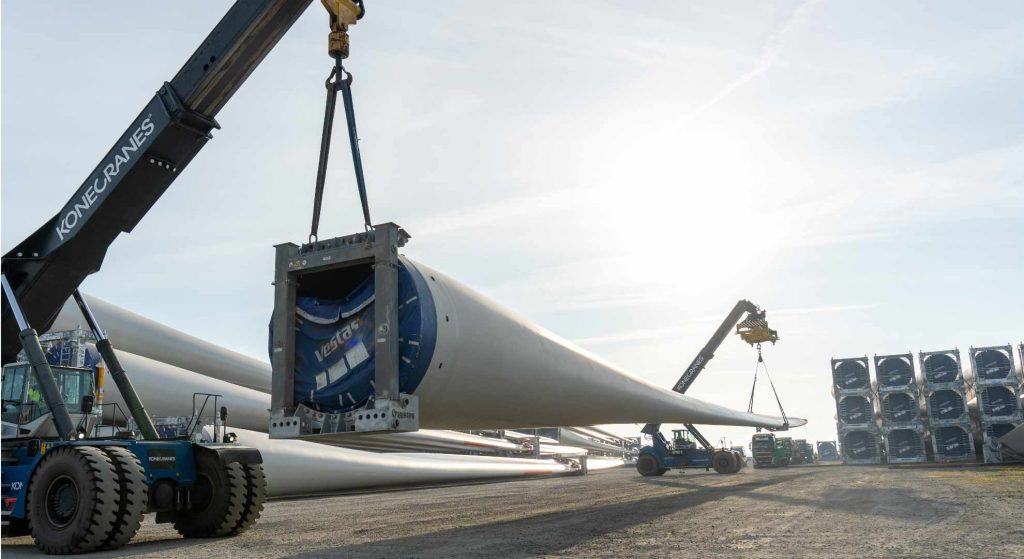The closure of the A27 between Hagen and Uthlede could cause problems for the port of Cuxhaven. The port industry welcomes the fact that Autobahn GmbH wants to make the route passable again as quickly as possible.
Cuxhaven, 26 February 2024 - As the A27 between Hagen im Bremischen and Uthlede (district of Cuxhaven) is in danger of subsiding, the approximately seven-kilometre section between the junctions was fully closed last Wednesday. The duration of the closure is still unclear. "This could bring the expansion of onshore wind energy in Germany to a standstill," says Arne Ehlers, Deputy Chairman of the Board of Hafenwirtschaftsgemeinschaft Cuxhaven e. V. (HWG).
The carriageway is to be renovated and completely rebuilt from this week, with traffic being diverted via the U28 and U33 for the duration. According to a statement from Autobahn GmbH, alternative routes have also been worked out for large and heavy goods transports (GST). This will ensure that the ports in Bremerhaven and Cuxhaven can still be reached.
However, an approval procedure is required for these journeys, in which it is checked which of the possible routes is suitable depending on the size and load of the individual transports. "This is a major challenge, as an average of up to 30 trucks with rotor blades leave the port for the south every night," emphasizes HWG CEO Michael de Reese.
Up to and including Friday, February 23, 1,800 applications for route changes had already been received by the relevant road traffic authorities. "We are therefore urgently appealing to the authorities to issue the new permits quickly so as not to delay the planned transports unnecessarily," he adds.
"We now need pragmatic and quick solutions," says Uwe Santjer, Mayor of Cuxhaven, adding: "It is crucial that we don't have to constantly adapt to new routes." He pleads for less bureaucracy so that permits that have already been issued can be quickly transferred to the specified alternative routes. "Perhaps special solutions can be found in this particular situation, which we definitely see as an emergency here," hopes Santjer.
The detour could be particularly problematic for the transport of rotor blades, as the heavy-duty trains are currently up to 90 meters long. "It is questionable whether it is technically possible to route these extra-long transports via the detour," Ehlers points out. That would be a disaster both for the Cuxhaven site and for onshore expansion in Germany. There are already signs of the massive effects of the full highway closure. Port customers could be forced to stop shipping rotor blades to Cuxhaven. If the A27 is not reopened for rotor blade transportation in the next two weeks, they will have to look for alternatives. "However, this is costly and time-consuming, especially as only Cuxhaven is able to handle very large quantities quickly," says Ehlers.
Whether the roadway area threatened by subsidence can soon be temporarily crossed by rotor blade transports via a temporary construction will probably be announced in the course of today, Monday, February 26. "We are pleased and grateful that Autobahn GmbH wants to solve the problem as quickly as possible," emphasizes Ehlers.
Cuxhaven is known as the most important hub for the transshipment of wind turbine components. According to Karina Würtz, Managing Director of the Offshore Wind Energy Foundation, the rotor blades for 80 percent of the wind turbines installed in Germany reach the wind farms via the port of Cuxhaven. More than 300 rotor blades are currently waiting in Cuxhaven to be transported onwards to the respective construction sites in the German hinterland.
Copyright: HWG Cuxhaven


